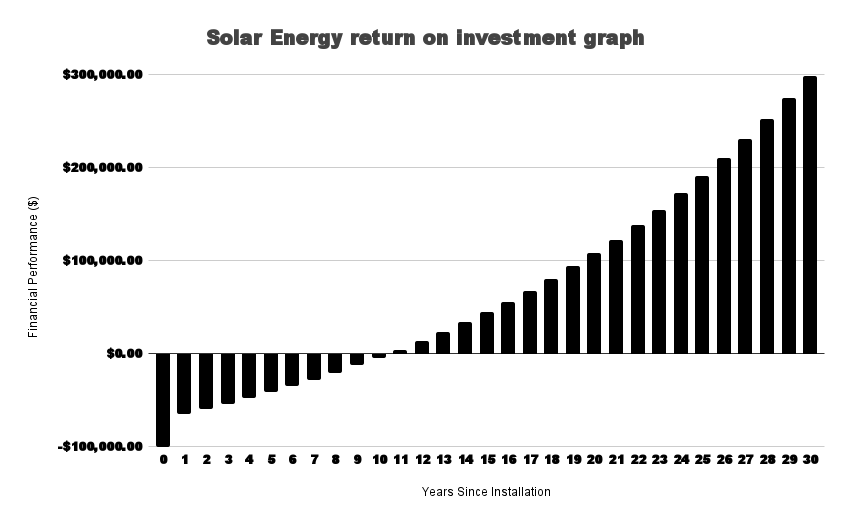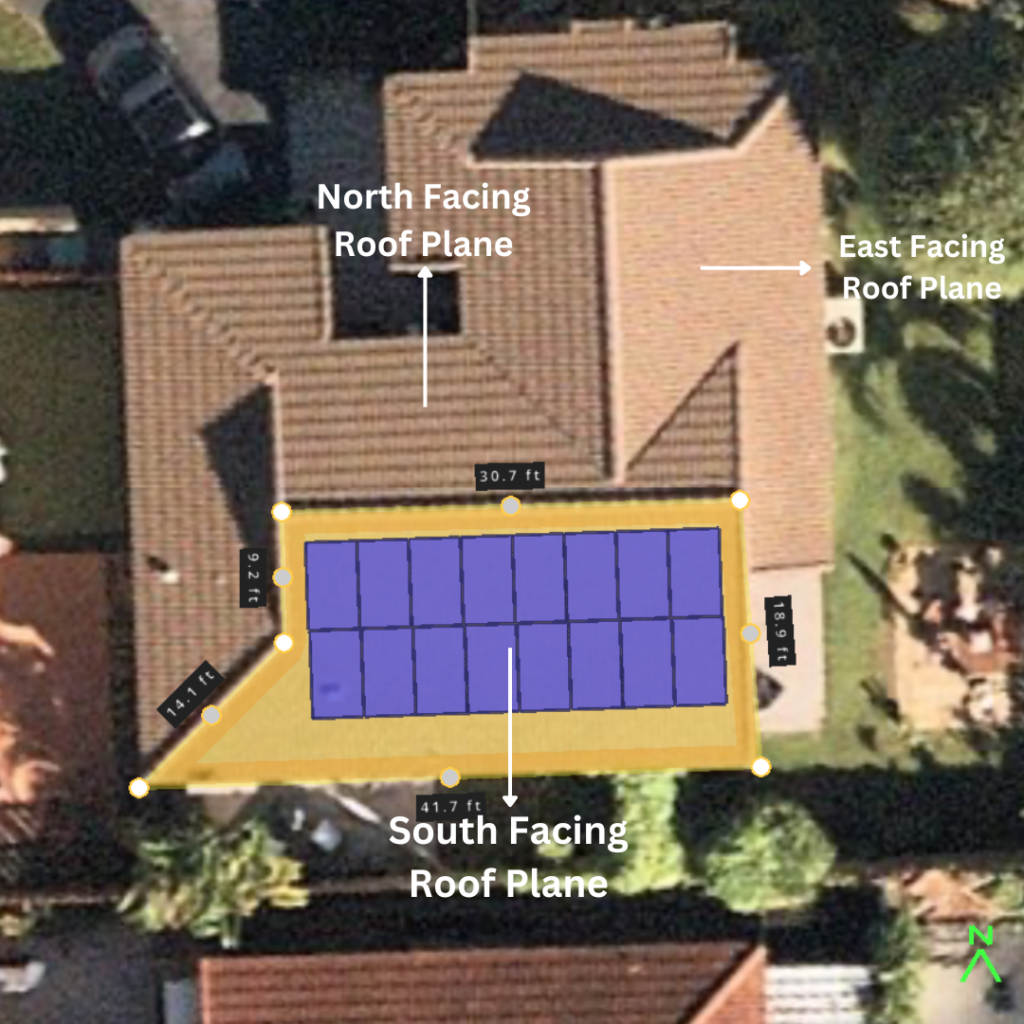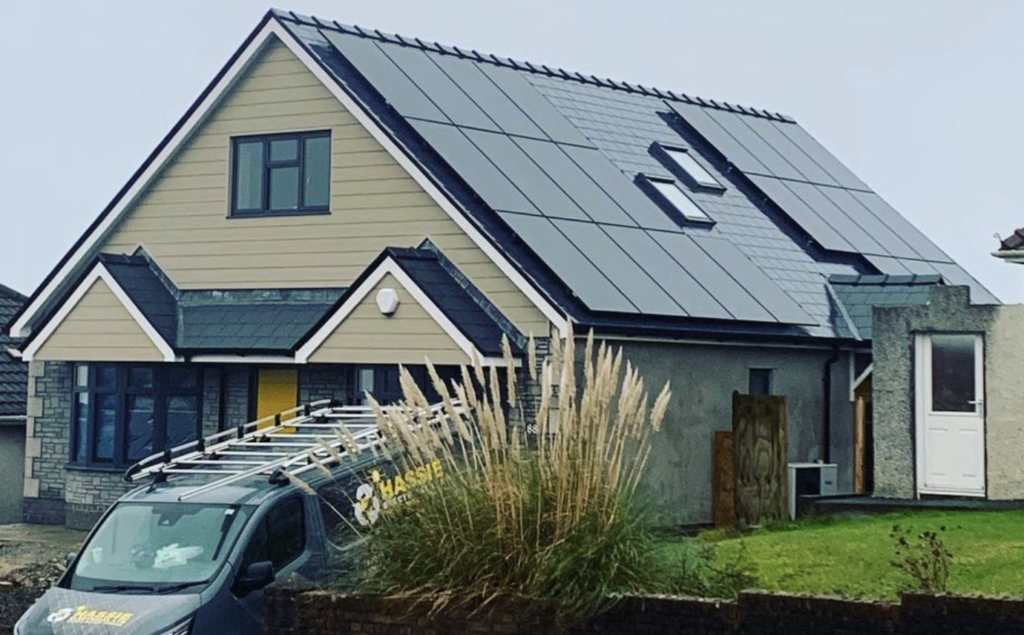Cost of solar panels: Are solar panels worth the investment?

As 2023 begins, more and more people are deciding to go solar. This guide was written to help you decide whether or not solar panels make financial sense to you.
Are solar panels worth the investment?
To figure this out you will need to know five things:
- What is your current electric bill (how much do you pay a month)
- How much energy will your panels produce a month
- How much will your solar panel installation cost?
- Am I eligible for the 30% tax break?
- In conclusion, are solar panels worth the investment?
Let’s discuss each:
1) What is your current electric bill consumption?
Get this number directly from your utility bill. As you may know, electricity consumption varies throughout the year, therefore you should use the average consumption rather than one month’s consumption.
There are two mains ways to find this number:
- In your electrical bill, look for a section with “avg kwh used” (kwh is the unit of energy) if it’s daily then, you should multiply it by 365 days to figure out your average annual consumption, if it’s monthly multiply it by 12. Instead of only using one month, it is better to have data from multiple months to get an average because energy consumption varies throughout a year.
- Check how much you pay a month and divide this number by the cost per kwh of energy in your state (may be found on the map above) and you will get your total kwh used for that month, make sure you are calculating the annual usage. See this example bellow:
I pay $90.00 a month, my state is Florida where according to the table above, the kwh of energy is at $ 0.136. Hence, I use $90/$0.136 = 662kwh/month or 662×12= 7,941kwh per year
2) How much energy will your panels produce a month?
The energy your panels produce will be dependent on:
- Hours of sun: some states/countries get more hours of sun per day than others, the average for the USA is 4 hrs of sun per day. Use this map to figure out how many hours of sun will your state have:
- Panel orientation: In the USA, a south facing solar panel will produce more energy than a east, west or north facing panel. To maximize production always aim to place as many panels in an unshaded south facing roof plane of your house:

- How many panels (system size): the more panels you have the more production. This is assuming the least shading conditions.
3) How much will the installation cost?
The standard unit of pricing in the solar installation industry is given by dollars per watt ($/watt). So, how many dollars per watt does your installation cost? In order to calculate this number use this formula: [Installation-cost / system-size (watts)].
The typical expected values range around $2.2-$3.80 per watt. In other words, a solar panel system of 11.6kw may cost anywhere from 11,600w x ($2.2) to 11,600w x ($3.80) or $25,552 to $44,080. The pricing may vary depending on roof type and the project location.
The information you should get from this variable is your return on investment (R.O.I.). Typical R.O.I. for solar panels is around 8-12 years.
4) Do you qualify for any tax break?
Make sure you qualify for the 30% tax break. With which you will get 30% of the cost of the system and installation process credited back to you . To put 30% in perspective, let’s take an example:
- You want a 11.6kw (11,600w) system installed for $25,552. You will get 30% of $25,552 which is $7,665.6 credit back to you, hence your installation net of the tax credit would be $25,552 – $7,665 = $17,887.
If you are retired or unemployed (you don’t pay income tax), you may not qualify for the 30% tax incentive. And be aware, solar salesmen are not accountants, they may promise you’ll get the tax credit when you may not. Not everyone qualifies for these tax credits. Ask your accountant or someone who is familiar with the matter before you take any action.
5) In conclusion, are solar panels worth the investment?
Once you understand the variables above, you should ask these questions to yourself:
- Is my electric bill high enough to justify a solar installation investment?
- Are any of my roof faces south facing, are they on shaded areas? How many hours of sun are there in my state?
- How long will I have to wait until my system pays for my initial investment?
- Do I qualify for any tax incentives?


Pingback: 9 reasons why you should not go solar - Solar Examine